Angioplasty is a minimally invasive procedure used to correct the blood flow through the artery, The blood flow may be restricted due to an obstruction or most commonly because of arterial atherosclerosis, that is, the thickening of the arterial wall because of deposits.
Angioplasty is sometimes also known as percutaneous transluminal angioplasty or balloon angioplasty. During the procedure, a thin tube or catheter is passed through the blood vessel in the groin or arm area to reach the site of narrowing or blockage. A stent or a balloon is attached to the tip of the catheter. After placing the stent or inflating the balloon, the interventional cardiologist withdraws the catheter.
There are different types of angioplasty procedures and each type has a clear indication on when it should be performed. Angioplasty cost also varies as per the type of procedure performed.
The common types of angioplasty and their indications are as follows:
Coronary Angioplasty: It is used in the case of stenosis of narrowing of the coronary artery in the heart due to plaque build-up, leading to unstable angina causing symptoms such as chest pain and functional limitations.
Peripheral Angioplasty: It is used to open the narrowing of other arteries other than the coronary arteries. Examples may include arteries in the abdomen, leg, and kidney.
Carotid Angioplasty: It is used to treat carotid artery stenosis, the main artery in the neck that supplies blood to the brain and face.
The following factors affect angioplasty cost:
| Country | Minimum Cost | Minimum Local Currency | Maximum Cost | Maximum Local Currency |
|---|---|---|---|---|
| India | USD 3000 | INR 249450 | USD 4500 | INR 374175 |
| Thailand | USD 6000 | THB 213900 | USD 8000 | THB 285200 |
| Turkey | USD 4050 | TRY 122067 | USD 5500 | TRY 165770 |
| United Arab Emirates | USD 4500 | AED 16515 | USD 10000 | AED 36700 |
Treatment cost
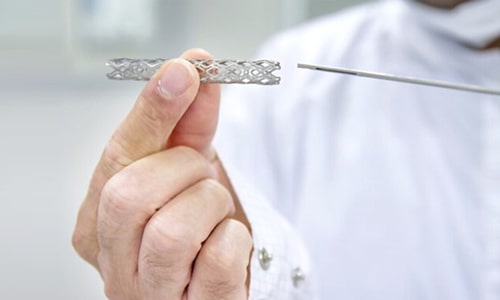
We provide numerous services for your medical journey, including:
We offer packages at reasonable pricing that include a variety of additional advantages, making it a better deal than paying for individual perks at the hospital. Angioplasty Surgery is required when a person has been diagnosed with blocked or narrowed coronary arteries. It is needed to clear the blockages and ensure restoration of normal blood flow through the vessels and arteries to the heart muscles. The procedure follows an insertion of a thin tube (a catheter) via incision in the leg or arm and guiding it to the heart. Two types of Angioplasties are there- Coronary and Balloon angioplasty. Therefore, the procedure is quite helpful to remove the obstruction or clotting., Consider this comprehensive & discounted package for Angioplasty surgery at Sharda Hospital, India.
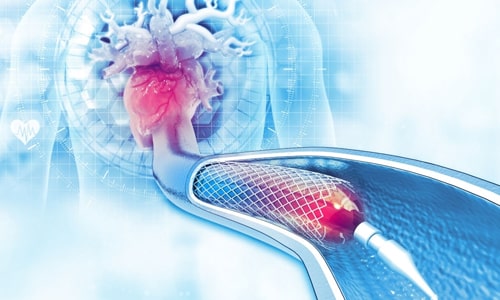
MediGence is offering immense facilities for your medical journey such as:
We offer packages at reasonable pricing that include a variety of additional advantages, making it a better deal than paying for individual perks at the hospital. Angioplasty Surgery is required when a person has been diagnosed with blocked or narrowed coronary arteries. It is needed to clear the blockages and ensure restoration of normal blood flow through the vessels and arteries to the heart muscles. The procedure follows an insertion of a thin tube (a catheter) via incision in the leg or arm and guiding it to the heart. Two types of Angioplasties are there- Coronary and Balloon angioplasty. Therefore, the procedure is quite helpful to remove the obstruction or clotting., Consider this comprehensive & discounted package for Angioplasty surgery at Pushpawati Singhania Research Institute, India.
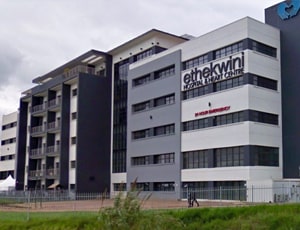
Apart from in-detail treatment procedures available, Lenmed Ethekwini Hospital and Heart Centre located in Durban, South Africa has a wide variety of facilities available for International Patients. Some of the facilities which are provided by them are Accommodation, Airport Transfer, Choice of Meals, Interpreter, SIM, TV inside room. Also listed below are some of the most prominent infrastructural details:
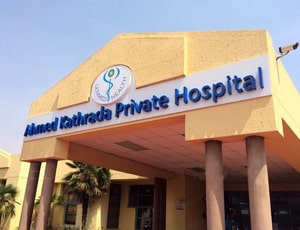
Apart from in-detail treatment procedures available, Lenmed Ahmed Kathrada Private Hospital located in Johannesburg, South Africa has a wide variety of facilities available for International Patients. Some of the facilities which are provided by them are Accommodation, Airport Transfer, Choice of Meals, Interpreter, SIM, TV inside room. Also listed below are some of the most prominent infrastructural details:
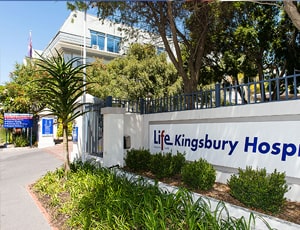
Apart from in-detail treatment procedures available, Life Kingsbury Hospital located in Cape Town, South Africa has a wide variety of facilities available for International Patients. Some of the facilities which are provided by them are Accommodation, Airport Transfer, Choice of Meals, Interpreter, SIM, TV inside room. Also listed below are some of the most prominent infrastructural details:

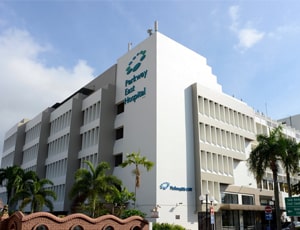
Parkway East Hospital located in Joo Chiat Pl, Singapore is accredited by JCI. Also listed below are some of the most prominent infrastructural details:
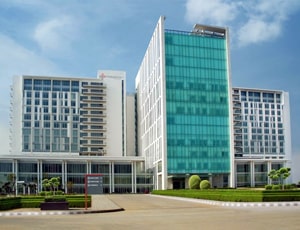
Types of Angioplasty in Medanta - The Medicity and its associated cost
| Treatment Option | Approximate Cost Range (USD) | Approximate Cost Range (INR) |
|---|---|---|
| Angioplasty (Overall) | 2846 - 6825 | 227416 - 551175 |
| Coronary Angioplasty (PCI) | 4093 - 6861 | 336465 - 560520 |
| Peripheral Angioplasty | 3344 - 5542 | 280602 - 465751 |
| Balloon Angioplasty | 2817 - 4481 | 231626 - 365514 |
DOCTORS IN 14 SPECIALITIES
FACILITIES & AMENITIES
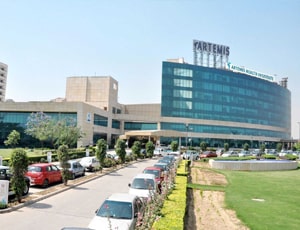
Types of Angioplasty in Artemis Health Institute and its associated cost
| Treatment Option | Approximate Cost Range (USD) | Approximate Cost Range (INR) |
|---|---|---|
| Angioplasty (Overall) | 2823 - 6697 | 233538 - 555972 |
| Coronary Angioplasty (PCI) | 3961 - 6739 | 328117 - 551406 |
| Peripheral Angioplasty | 3349 - 5684 | 271091 - 462483 |
| Balloon Angioplasty | 2843 - 4510 | 232968 - 365746 |
DOCTORS IN 15 SPECIALITIES
FACILITIES & AMENITIES
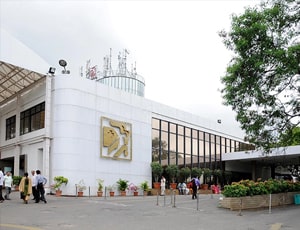
Types of Angioplasty in Apollo Hospitals and its associated cost
| Treatment Option | Approximate Cost Range (USD) | Approximate Cost Range (INR) |
|---|---|---|
| Angioplasty (Overall) | 2809 - 6707 | 234977 - 556673 |
| Coronary Angioplasty (PCI) | 4038 - 6862 | 325439 - 561515 |
| Peripheral Angioplasty | 3394 - 5707 | 275628 - 458912 |
| Balloon Angioplasty | 2785 - 4445 | 232806 - 364115 |
DOCTORS IN 14 SPECIALITIES
FACILITIES & AMENITIES
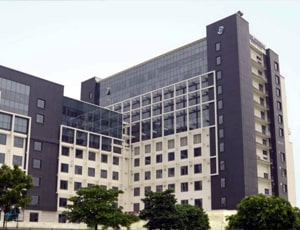
Types of Angioplasty in Venkateshwar Hospital and its associated cost
| Treatment Option | Approximate Cost Range (USD) | Approximate Cost Range (INR) |
|---|---|---|
| Angioplasty (Overall) | 2550 - 6113 | 208614 - 497880 |
| Coronary Angioplasty (PCI) | 3641 - 6077 | 300040 - 500366 |
| Peripheral Angioplasty | 3047 - 5057 | 250332 - 417474 |
| Balloon Angioplasty | 2534 - 4055 | 207905 - 332715 |
DOCTORS IN 13 SPECIALITIES
FACILITIES & AMENITIES
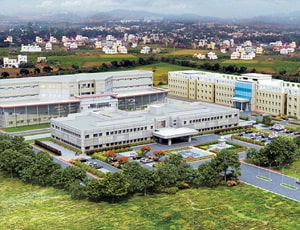
Types of Angioplasty in Global Health City and its associated cost
| Treatment Option | Approximate Cost Range (USD) | Approximate Cost Range (INR) |
|---|---|---|
| Angioplasty (Overall) | 2753 - 6745 | 232671 - 544516 |
| Coronary Angioplasty (PCI) | 4044 - 6642 | 336523 - 560469 |
| Peripheral Angioplasty | 3315 - 5635 | 275082 - 471475 |
| Balloon Angioplasty | 2823 - 4440 | 231582 - 362692 |
DOCTORS IN 14 SPECIALITIES
FACILITIES & AMENITIES
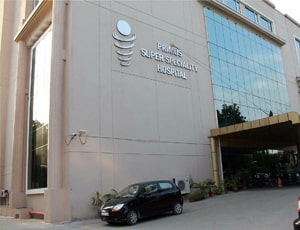
Types of Angioplasty in Primus Super Speciality Hospital and its associated cost
| Treatment Option | Approximate Cost Range (USD) | Approximate Cost Range (INR) |
|---|---|---|
| Angioplasty (Overall) | 2549 - 6100 | 208919 - 499214 |
| Coronary Angioplasty (PCI) | 3647 - 6063 | 298940 - 497303 |
| Peripheral Angioplasty | 3031 - 5089 | 248519 - 414829 |
| Balloon Angioplasty | 2528 - 4066 | 208720 - 333622 |
DOCTORS IN 13 SPECIALITIES
FACILITIES & AMENITIES
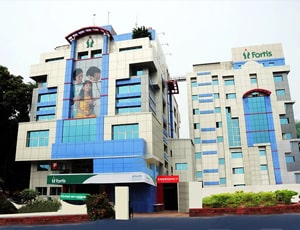
Types of Angioplasty in Fortis Malar Hospital and its associated cost
| Treatment Option | Approximate Cost Range (USD) | Approximate Cost Range (INR) |
|---|---|---|
| Angioplasty (Overall) | 2532 - 6100 | 207990 - 498041 |
| Coronary Angioplasty (PCI) | 3660 - 6102 | 300823 - 501333 |
| Peripheral Angioplasty | 3045 - 5077 | 249831 - 414997 |
| Balloon Angioplasty | 2528 - 4054 | 208954 - 332409 |
DOCTORS IN 9 SPECIALITIES
FACILITIES & AMENITIES
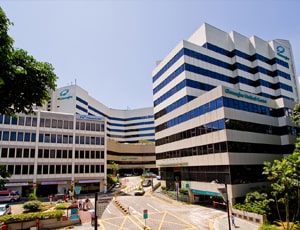
Gleneagles Hospital located in Napier Road, Singapore is accredited by JCI. Also listed below are some of the most prominent infrastructural details:
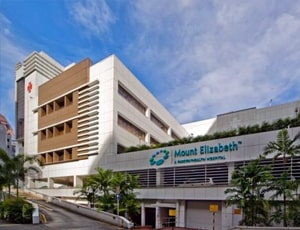
Mount Elizabeth Hospital located in Singapore, Singapore is accredited by JCI. Also listed below are some of the most prominent infrastructural details:
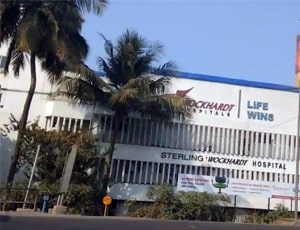
Types of Angioplasty in Sterling Wockhardt Hospital and its associated cost
| Treatment Option | Approximate Cost Range (USD) | Approximate Cost Range (INR) |
|---|---|---|
| Angioplasty (Overall) | 2536 - 6109 | 207110 - 500284 |
| Coronary Angioplasty (PCI) | 3657 - 6101 | 298385 - 501192 |
| Peripheral Angioplasty | 3047 - 5092 | 249304 - 414437 |
| Balloon Angioplasty | 2534 - 4052 | 208485 - 333425 |
DOCTORS IN 14 SPECIALITIES
FACILITIES & AMENITIES
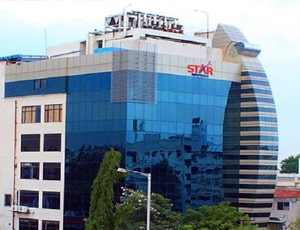
Types of Angioplasty in Star Hospitals and its associated cost
| Treatment Option | Approximate Cost Range (USD) | Approximate Cost Range (INR) |
|---|---|---|
| Angioplasty (Overall) | 2318 - 5659 | 193198 - 456893 |
| Coronary Angioplasty (PCI) | 3398 - 5611 | 275956 - 462126 |
| Peripheral Angioplasty | 2820 - 4674 | 229343 - 380978 |
| Balloon Angioplasty | 2320 - 3790 | 190288 - 305544 |
DOCTORS IN 12 SPECIALITIES
FACILITIES & AMENITIES
A minimally invasive medical technique called an “angioplasty” is done to open up clogged or restricted arteries.
Peripheral angioplasty is often used to enhance blood flow to the legs, and carotid angioplasty, and coronary angioplasty, are conducted to improve blood flow to the brain. A catheter is placed into the constricted artery during the surgery, and at the tip of the catheter is a deflated balloon. Once in place, the balloon is inflated to expand the artery and start blood flow again by pressing the plaque up against the walls of the artery. To help keep the artery open, a stent—a tiny mesh tube—may occasionally be inserted. Conditions like carotid artery stenosis, peripheral artery disease, and coronary artery disease are frequently treated using angioplasty.
Conditions like carotid artery stenosis, peripheral artery disease, and coronary artery disease are frequently treated using angioplasty. Vascular surgeons or interventional cardiologists usually carry it out in a specialized catheterization laboratory (cath lab). Compared to open surgery, angioplasty is less invasive and linked to quicker recovery periods and fewer problems.
After performing the diagnostic test the patients were prepared with oral sedatives for relaxation.
Following angioplasty, patients receive close monitoring in a recovery area for several hours. Vital signs like heart rate, blood pressure, and oxygen levels are regularly checked.
It's common for patients to remain in bed for a few hours post-procedure to allow the puncture site (often in the groin or wrist) to heal and minimize the risk of bleeding or complications.
Close observation continues to ensure no complications, such as bleeding, abnormal heart rhythms, or diminished blood flow to vital organs.
Patients may experience discomfort at the puncture site or in the chest. Pain relief medications may be provided to alleviate any discomfort.
Patients are encouraged to increase activity levels, starting with short walks gradually. However, they should avoid strenuous activities and heavy lifting for a period determined by their healthcare provider.
Patients often receive medication prescriptions to prevent blood clots, lower the risk of complications, and manage underlying heart conditions. These may include antiplatelet drugs (e.g., aspirin or clopidogrel), blood thinners, cholesterol-lowering medications, and blood pressure regulators.
patient can also Schedule follow-up visits with healthcare providers are crucial to monitor progress, review medications, and evaluate the need for further treatment or lifestyle adjustments.
Some patients may be referred to cardiac rehabilitation programs. These programs offer supervised exercise, education, and emotional support to enhance cardiovascular health and minimize the likelihood of future heart problems.
Ask your healthcare adviser for the best multiple options and choose the one that meets your expectations
Angioplasty package cost in South Africa has different inclusions and exclusions. The top hospitals for Angioplasty in South Africa covers all the expenses related to the pre-surgery investigations of the candidate. Typically, the package cost of Angioplasty in South Africa includes the expenses related to the surgeon's fee, anesthesia, hospital, meals, nursing and ICU stay. There are many things that may increase the cost of Angioplasty in South Africa, including prolonged hospital stay and complications after the procedure.
There are several best hospitals for Angioplasty in South Africa. Some of the best hospitals for Angioplasty in South Africa include the following:
After discharge from the hospital, the patient has to stay for another 18 days in the country for complete recovery. During this time, the patient undergoes medical tests and consultations. this is to ensure that the treatment was successful and the patient us safe to return.
There are certain expenses additional to the Angioplasty cost that the patient may have to pay for. These are the chanrges for daily meals and hotel stay outside the hospital. The per day extra expenses in South Africa per person are about USD 50 per person.
The following are some of the best cities for Angioplasty in South Africa:
The patient is supposed to stay at the hospital for about 2 days after Angioplasty for monitoring and care. The doctors team review the patient's recovery during this time with the help of blood tests and imaging scans. Once they feel that everything is on track, the patient is discharged.
The average rating for Angioplasty hospitals in South Africa is 2.9. This rating is automatically calculated on the basis of several parameters such as the infrastructure of the hospital, quality of services, nursing support and other services.
There are more than 3 hospitals that offer Angioplasty in South Africa. Such clinics have the required infrastructure and a dedicated unit where patients can be treated. Such hospitals follow all legal protocols and guidelines as specified by the local medical affairs body when it comes to the treatment of international patients.